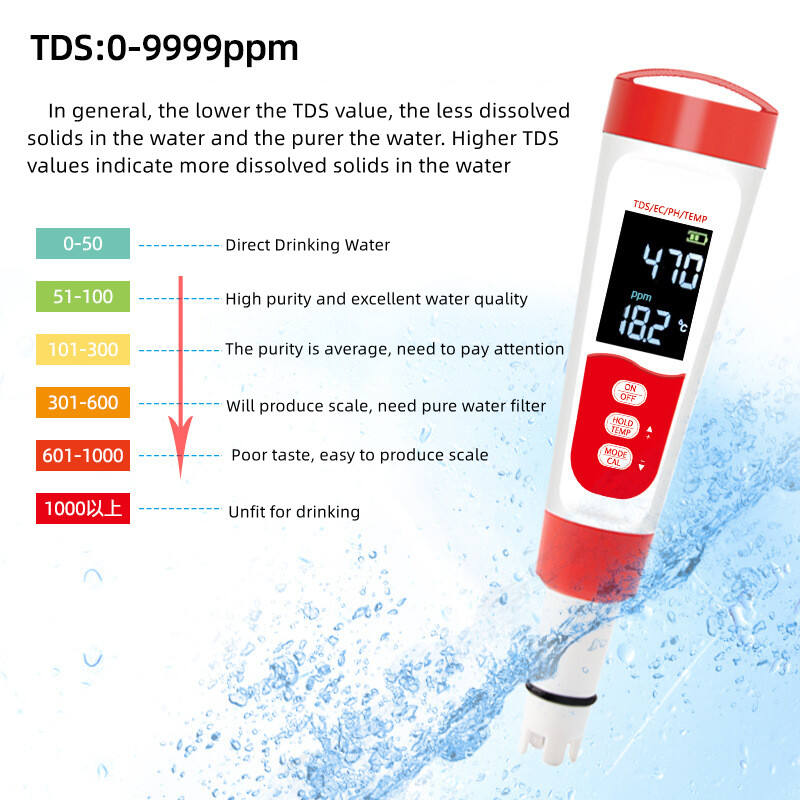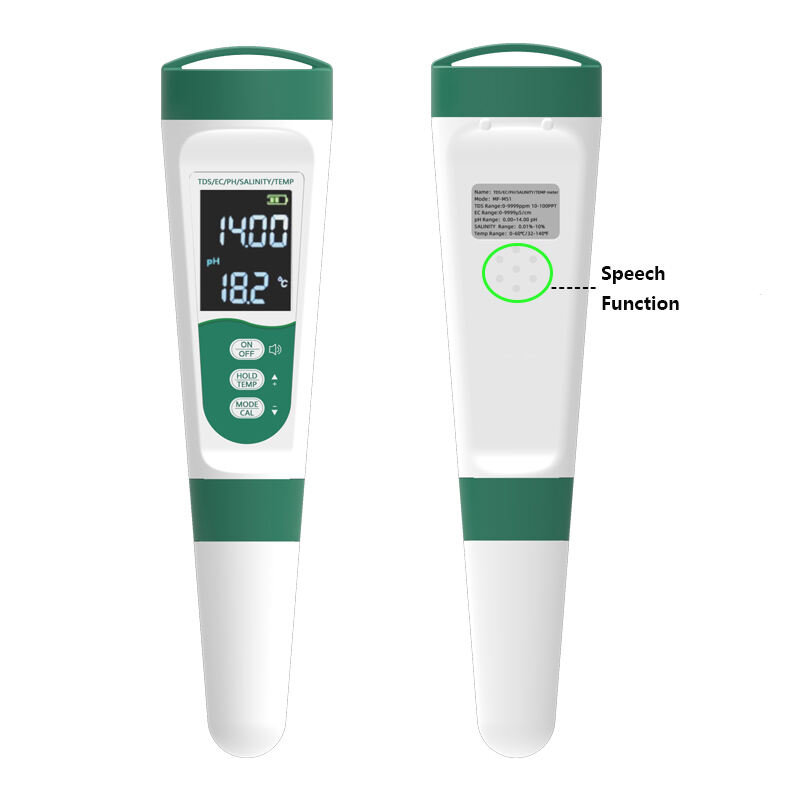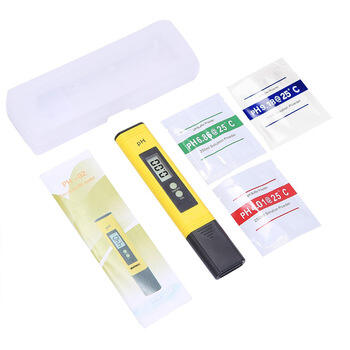অ্যাকুয়ারিয়ামের জন্য ডিজিটাল pH মিটার
একটি ডিজিটাল pH মিটার একটি আকুয়ারিয়ামের জন্য উভয় ফ্রেশওয়াটার এবং মেরিন আকুয়ারিয়ামের জন্য অপটিমাল জলের শর্তগুলি বজায় রাখতে একটি প্রয়োজনীয় যন্ত্র। এই সঠিক যন্ত্রটি জলের এসিডিটি স্তরের সঠিক, বাস্তব-সময়ের পরিমাপ দেয়, যা জলচর জীবের স্বাস্থ্য এবং ভালো অবস্থায় থাকার জন্য গুরুত্বপূর্ণ। আধুনিক ডিজিটাল pH মিটারগুলি উন্নত সেন্সর প্রযুক্তি ব্যবহার করে যা সাধারণত 0.01 pH ইউনিটের মধ্যে সঠিকভাবে তাৎক্ষণিক পাঠ্য দেয়। এই যন্ত্রগুলিতে সাধারণত তাপমাত্রা সংশোধন ফাংশনালিটি অন্তর্ভুক্ত থাকে, যা বিভিন্ন জলের তাপমাত্রায় সঠিক পাঠ্য নিশ্চিত করে। মিটারগুলি সাধারণত ব্যাখ্যা করতে সহজ হওয়ার জন্য বিভিন্ন আলোক শর্তে একটি ব্যাকলাইট এলসিডি ডিসপ্লে বৈশিষ্ট্য ধারণ করে, এবং অনেক মডেল জলচর পরিবেশে নির্ভরযোগ্য কাজ করতে জলপ্রতিরোধী নির্মাণ অফার করে। পরিমাপ প্রক্রিয়াটি শুধুমাত্র প্রোবটি আকুয়ারিয়ামের জলে ডুবিয়ে পাঠ্য স্থিতিশীল হওয়া পর্যন্ত অপেক্ষা করা অন্তর্ভুক্ত। অধিকাংশ ডিজিটাল pH মিটার ক্যালিব্রেশন সমাধান এবং স্বয়ংক্রিয় ক্যালিব্রেশন বৈশিষ্ট্য সঙ্গে আসে, যা রক্ষণাবেক্ষণকে সহজ করে। এই যন্ত্রগুলি সাধারণত অতিরিক্ত বৈশিষ্ট্য অন্তর্ভুক্ত করে যেমন ডেটা ধারণের ক্ষমতা, ব্যাটারি জীবন সংরক্ষণের জন্য স্বয়ংক্রিয় বন্ধ হওয়া এবং সময়ের সাথে pH পরিবর্তন ট্র্যাক করার জন্য মেমরি ফাংশন। এই যন্ত্রগুলি উভয় পেশাদার আকুয়ারিস্ট এবং শখীদের জন্য ডিজাইন করা হয়েছে, যা ব্যবহারকারী-বান্ধব পরিচালনা অফার করে এবং সঠিক আকুয়ারিয়াম রক্ষণাবেক্ষণের জন্য পেশাদার স্তরের সঠিকতা বজায় রাখে।


